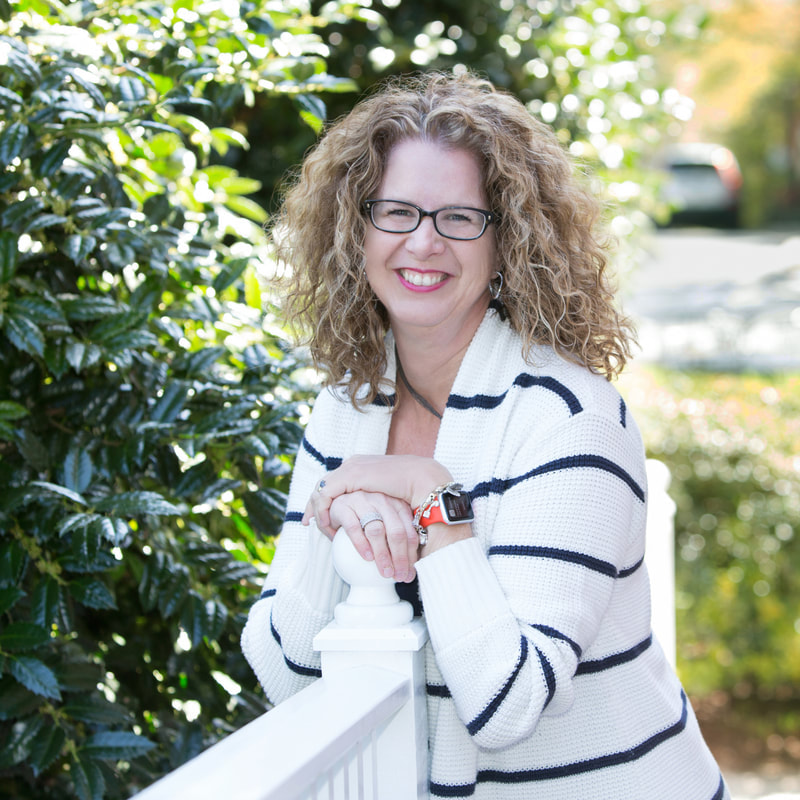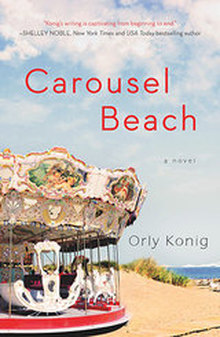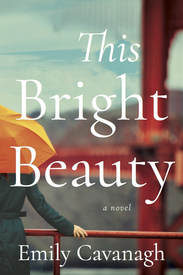|
Writer Orly Konig and I became friends last year through'17 Scribes, an online group of debut writers. Orly and I also share a fabulous agent and have had a chance to learn the ropes of this crazy publishing business together over the past year and a half. Her first book, The Distance Home released last spring. Her next novel, Carousel Beach, comes out May 8. Read on to learn more about Orly and her books. 1. Tell us a little about yourself.
Oh my, you started with the hardest question first. :-) I’m an escapee from the corporate world who whole-heartedly embraced the troll-writing life. I work while my son is at school and then fit in additional work around his crazy schedule (we spend a lot of time at climbing gyms). Anyone who follows me on social media knows that I’m a coffee-aholic and am borderline crazy-cat lady. Okay, crazy-animal lady because if it was up to me, I’d have a large property with goats and horses and donkeys and llamas and lots of dogs. 2. Your first book, The Distance Home, came out last spring. Your next book, Carousel Beach, comes out this May. Prior to your first book, was publishing something you’d been pursuing a long time? I’m a late bloomer to writing, well, to fiction at least. I never had much of a desire to write fiction and the one creative writing class I took in grad school was not a glowing success (the professor told me that wasn’t my strength and I should stick to journalism). Fast forward many years and a long stretch in corporate communications, and I was bored doing pretty much the same thing over and over. When I mentioned to my husband that I needed a new creative outlet and was considering going back for my PhD, he suggested I take a shot at writing again — fiction, essays, whatever. I did. I loved it. Turns out it was a dormant strength. :-) The Distance Home was actually my fourth completed manuscript and the third that I actively queried. Interestingly enough, Carousel Beach was written — and queried — before The Distance Home but never quite hit the mark. I think it was about 7 years from the first manuscript draft to the one that got picked up. 3. Tell us about your latest book. Here’s the official blurb for the book: A cryptic letter on her grandmother’s grave and a mysterious inscription on a carousel horse leads artist Maya Brice to Hank Hauser, the ninety-year-old carver of the beloved carousel she has been hired to restore in time for its Fourth of July reopening in her Delaware beach town. Hank suffers from Alzheimer’s, but on his “better” days, Maya is enthralled by the stories of his career. On his “off” days, he mistakes her for her grandmother—his secret first love. While stripping chipped layers of paint from the old horse and peeling layers of fragmented memories from the old man, Maya untangles the intertwined secrets of love, heartbreak, and misunderstandings between three generations of strong willed women. 4. How did publishing your first book change your process of writing? The biggest change has been learning how to manage my time and creative energy between writing and marketing and shifting between multiple stories. Writing and marketing require such different efforts that it’s sometimes hard to move between them. When I get into writing mode, it’s hard for me to switch gears and even harder to let go of the characters that are fresh and fun. And with multiple projects on the move, it can get tricky remembering what characters belong to what story. In one of the first interviews I did for The Distance Home, I was asked about one particular character and for the life of me, I couldn’t remember who that was or how they fit in the book because my brain was filing through the cast of characters in my WIP instead. 5. When you’re stuck, what helps to get the ideas and words flowing? Walking away and doing something that’s not writing related helps. I crochet a lot when I’m working on a project. There’s something about busy fingers that allows my brain to noodle story ideas. I’ll also get on the treadmill or spin bike and think about the next scene or scenes. And, I’m hopelessly stuck, I futz around with house stuff — write a paragraph, change the laundry load; delete two pages, scrub the toilets. 6. Do you read your book reviews? How do you deal with bad or good ones? I know I shouldn’t, but I do look. Honestly, I cringe at all of them. Obviously it’s easier to read the good ones but even those feel like they belong to someone else. I don’t let the bad ones get to me though. I’m pretty good about shrugging it off. I know my books aren’t for everyone and that’s okay. 7. What’s on your tbr pile right now? Have you read anything recently that you loved? Oh my goodness, what isn’t on my TBR pile right now. I read a lot of ARCs for fellow authors so those take priority but, of course, I still buy a billion books. And since I’m not a speed reader, it takes me time to get through a book. I read mostly at night before going to bed and I’m usually so tired that I fall asleep pretty quickly. I try to make Fridays reading days but that doesn’t always work. I’ve read a few fabulous books lately. This Bright Beauty absolutely blew me away, then promptly sent me into a panic of “I’ll never be this good.” :-) I also loved Heather Webb’s The Phantom’s Apprentice. And I recently finished Learning to Stay by Erin Celello. 8. Anything else you want to tell us about yourself or your writing? Writing is my therapy. It’s my way of sorting through emotions, fears, frustrations. Through my characters I can say or do things I wouldn’t dream of actually doing. I can give a character a profession or hobby that fascinates me. When I write, I’m in control and that’s not always the case in real life. No wonder then that I get itchy when I’m not writing. :-) To connect with Orly, you can find her here: Website: www.orlykonig.com Facebook: https://www.facebook.com/OrlyKonigAuthor/ Instagram: https://www.instagram.com/orlykonig/ Pinterest: https://www.pinterest.com/orlykonigauthor/ Goodreads: https://www.goodreads.com/OrlyKonig Twitter: https://twitter.com/OrlyKonig
1 Comment
Lottie I once heard that memory doesn’t develop in a child until age three. But I remember this: sleeping in the crib with Franci, our faces nearly touch- ing, inhaling the milky scent of each other’s breath. e sun refracted through the slats of the crib, washing Franci’s pink skin in gold. Her thumb was tucked tightly between my lips, and I was vaguely aware of the warm, wet feeling of my own thumb in Franci’s mouth. A light wind ru ed the curtains. We slept, we breathed, our arms woven to share thumbs. Whenever someone asks me what it’s like to be a twin, this is the image that comes back to me. I wish I could pluck it from my mind and hold it up to the light like a slide. “This is what it’s like,” I would say. We were born twelve weeks early, our tiny bodies already tired of shar- ing such a small space. I’m sure I started it, always eager, needing to be rst, not even born and already sick of sharing. I picture myself exing my scrawny limbs, all two pounds and four ounces, arching my back in the warm, cramped space of our mother’s womb, and deciding, Enough. I began the long descent into the world, like an animal burrowing through a tunnel, trying to nd the hole on the other end. And then I picture Franci. Two pounds and one ounce, and per- fectly content to spend another three months curled up beside me. Someone should have told me there was no hurry. ings would be no di erent outside that safe warm space. We’d share tight spaces all our lives. We weren’t ready. Oh, our bodies had formed. We had ngers and toes and hearts and lungs and kidneys. We had brains. But Franci wasn’t ready. And maybe I wasn’t, either. For six months we’d lived as one being, our bodies nearly fused together. In the moments we prepared to part our solitary space, I wonder if my mind was doing its own split- ting, fracturing into the Black and White that would eventually rule my life. Later I’d wonder if things would have been di erent had we been allowed those extra months that should have been ours. I began the slow and awful descent, and Franci had no choice but to follow, out into the cold and gaping world, the bright light of life already blinding. I was born six minutes before Franci, and I waited patiently for her to arrive. In our separate incubators we drank oxygen, and plastic tubes were secured to our translucent skin with tape. I must have been so pleased to have my own bed, inches of empty space surrounding me, no elbows crammed into my face, no feet squashing my belly. In those crucial minutes, I was surviving on my own, and I held on to that knowledge so many times later in life. But Franci’s heart was beating too fast, her breath coming in short and jagged gasps. Put me back, her body screamed. I’m not ready. Did I feel guilty then, for what I had started? I wonder if she ever forgave me for it. It was one of the rst stories I remember hearing from Mother. e rest of the story goes like this: Franci was dying. Or not dying yet, but not coming into life, either. en a nurse suggested putting her in the same incubator as me. ey placed her at my side and immediately she calmed down. Her heart rate slowed, and she began to breathe more regularly. And though I imagine I relished the unfamiliar feeling of all that space to myself, I also know that I was more comfortable once Franci was beside me again. In our new shared bed, I coiled my body around my sister, encircling her in a cocooning embrace. ere’s a picture of it in one of the musty yellow photo albums. Two tiny black- haired babies in only diapers, tubes stuck to splayed legs, and the one on the left curved around the one on the right, shielding the other baby from . . . what? From life? Not even a day old, and I’d saved her life. It wasn’t until I was older that I wondered: Why would you repeat such a tale to children, a tale of failure and inability that was present from the beginning? A tale so lled with powerlessness and dependency that it seemed innate. But Mother told the tale because she thought it explained our twinship, how close we were, even then. How different the rest of our lives turned out to be. In the end, Franci would be the one to save my life over and over again. And then one day, she couldn’t. --------------------------------------- Like what you've read so far? THIS BRIGHT BEAUTY is available to purchase--print, Kindle/ebook, or audio. You can find it here. |
Proudly powered by Weebly



 RSS Feed
RSS Feed